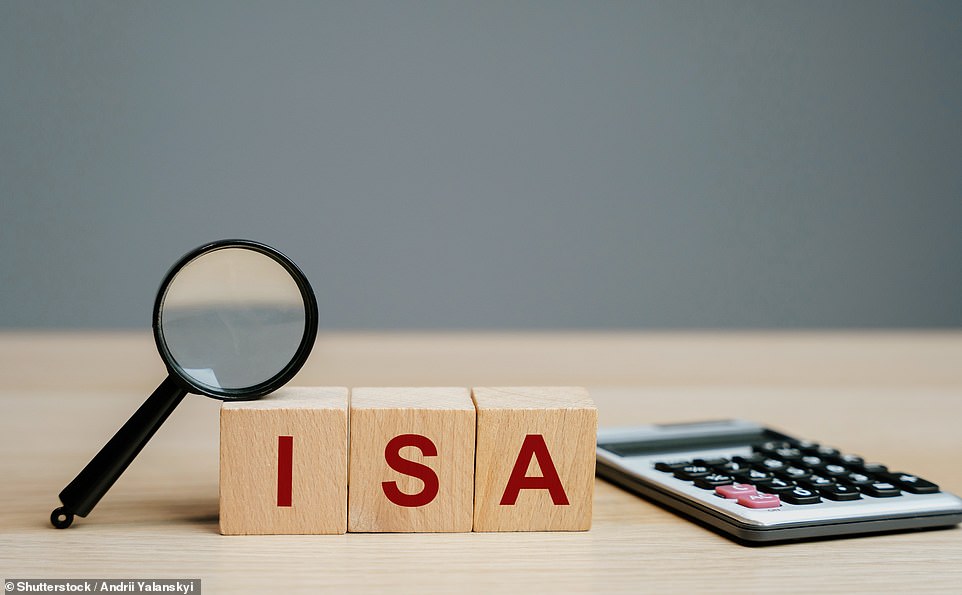Advertisement
Products featured in this article are independently selected by This is Money’s specialist journalists. If you open an account using links which have an asterisk, This is Money will earn an affiliate commission. We do not allow this to affect our editorial independence.
The two types of Isa suit different financial goals, but there’s a place for both within your financial planning. Our guide to the difference between cash Isas and stocks and shares Isas explains what you need to know.
Isas have hit the headlines recently with the Chancellor, Rachel Reeves, wanting to encourage cash savers to invest their money instead.
As part of plans to nudge Britons towards options that can provide better returns than cash over the long run, savers in low-interest cash accounts will be sent information about investing.
Reeves is also said to be considering reducing the amount that savers can stash in cash Isas.
An Isa – or individual savings account – is a pot that lets your money grow free from tax that would otherwise be due on interest earned or investment growth. You get an annual Isa allowance of £20,000, which you can split across all your Isas.
Isas come in different flavours, but the two main types are cash Isas and stocks and shares Isas. It’s important to know how each type of Isa works so you can choose the right one for your circumstances.
How do Isas work?
General Isa rules apply to both cash Isas and stocks and shares Isas:
- You can’t save more than £20,000 across all your Isas – and if you don’t use your Isa allowance in one tax year, you can’t roll it over to the next.
- It’s possible to open and pay into multiple cash Isas and stocks and shares Isas each tax year, just keep an eye on how much Isa allowance you’ve used.
- You can only pay into one lifetime Isa each tax year, up to a maximum of £4,000 (this counts towards your overall £20,000 allowance)
- If you withdraw money and then deposit it again, this depletes your Isa allowance – unless it’s a flexible Isa, whereby you can replace money in the same tax year without affecting your allowance.
- You can transfer Isas to different providers, and this doesn’t use up your Isa allowance as long as you follow the transfer process – it’s possible to transfer a cash Isa to a stocks and shares Isa and vice versa.

Inspect your Isa options: The various types of Isa suit different goals
How does a cash Isa work?
Cash Isas work in a straightforward way – you deposit cash into the account, which then earns interest free of income tax. There’s very little risk of getting back less cash than you put into the account. You’ll usually want to pick an account that pays the highest rate of interest.
But if the rate of inflation is higher than the account’s interest rate, you should view this as a risk. The value of your cash will be eroded over the long term, and you won’t be able to buy as much with your pounds. This is why investing money can suit longer term goals better than saving cash.
If you choose to take out a fixed-rate cash Isa:
- The interest rate stays the same over the length of the term.
- The catch is you usually won’t be able to access your money during that time.
- If you can access the cash, the provider usually applies a penalty – such as a deduction of the interest it’s paid.
On the other hand, you could choose an easy-access cash Isa:
- The interest rate is usually variable, meaning the provider can change it whenever it likes – usually in response to the Bank of England changing the base rate.
- The advantage is you’re usually able to withdraw your money without penalty.
- The disadvantage is that easy-access interest rates are often – but not always – lower than fixed rates.
Read more: The best cash Isa savings rates
How does a stocks and shares Isa work?
It’s important to set out the key differences between investing and saving.
In stocks and shares Isas, you still deposit money into the account with the aim of receiving a return.
But any returns will be in the form of investment growth or income from your investments. You make a profit when you sell shares that have increased in value, for example, and you can receive an income from dividends paid by the companies that you own, or from bonds.
You’ll be able to access your money whenever you like, but most experts recommend keeping your money invested for at least five years. This helps to smooth out changes in the value of your investments. Over long time periods, there’s more chance that your investments will have grown on average.
Here are the key points when thinking about how stocks and shares Isas work:
- Stocks and shares Isas protect your investments from capital gains tax and dividend tax (and income tax if you receive interest payments from bonds).
- You need to pick an investment platform that suits you and your goals – and many charge fees for holding your investments, so you’ll want to be cost-conscious.
- You can choose your own investments or go with a stocks and shares Isa provider that picks investments for you (this is usually a more expensive option).
- If you want someone else to invest for you, investing in funds is another option – these are baskets of investments looked after by a fund manager.
- After depositing your money, you must then invest it – common investments include shares in a company, bonds and funds.
Read more: Investing for beginners: Choose the right platform to get started
Can you have a cash Isa and a stocks and shares Isa?
Yes, it’s possible to have a cash Isa and a stocks and shares Isa and pay into both in the same tax year.
Holding each type of Isa can suit different financial aims. If you’re saving for shorter-term goals like a holiday or home renovations, or even just for an emergency fund, a cash Isa works best. Your money is generally easy to access and there’s very little risk of getting back less than what you put into the account when you need to withdraw it most.
If you’re saving with a longer time frame in mind – experts generally suggest at least five years – it’s a good idea to consider a stocks and shares Isa. There’s a risk of getting back less than you invested, but over the long term, your investments can generate greater returns than cash.
Longer-term goals might include a child’s education, a deposit for a home, and retirement – although pensions should generally be used first when saving for older age. Read more in our guide to the best self-invested personal pensions.
Investing platforms tested and reviewed by our experts:
#Cash #Isa #stocks #shares #Isa #choose
















